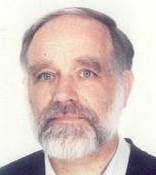Daniel Comboni
Comboni Missionaries
Institutional area
Other links
Newsletter
In Pace Christi
Guarda Alessandro Lwanga
Having entered the novitiate in Gozzano in 1967, Alessandro Lwanga was ordained priest on 4 March, 1973. After two years’ pastoral work in the parish of Zamalek, he was appointed to the Region of Zaire. He chose to call himself Lwanga because, as he put it, he wanted to achieve a radical change, to be reborn by detaching himself from his cultural and professional world: “I chose the name of St Charles Lwanga, the Ugandan martyr, so that he might accompany me in my missionary work and help me make common cause with the Africans”.
“He loved Africa before he ever went there – writes Fr. Fermo Bernasconi – choosing to be ordained in Paris in the ‘African community where he had helped with catechesis while a scholastic at Issy-les-Moulineaux.
It was important to him to serve and be in contact with people. When he was asked to be provincial bursar, which meant leaving the parish of Tadu, he asked to have a regular pastoral commitment. He was therefore given pastoral responsibility for a sector of the parish of Sainte Anne in Isiro where he showed love and creativity, involving people in the pastoral work. He was later made director of the catechetical centre at Nangazizi. He eventually succeeded in working full time in specifically missionary pastoral work among the Pygmies of Bangane, a community specifically devoted to the evangelisation of that people. There he aimed to achieve communion rather than efficiency. It is significant that he sought to know the culture of the people, continuing the work of Fr. Pietro Lombardo, and to edit a first grammar and dictionary of the Kibudu language spoken by the Pygmies of the area”.
Fr. Lwanga “would have by far preferred to have nothing to do with financial administration and be free to live out his missionary ideal but instead, it was in there that he rendered his greatest service to the province of Congo and the whole Institute”, said Fr. Mumbere, Provincial of Congo. “One of greatest defects we missionaries have is our failure to administer funds and common goods correctly and transparently. Patiently but strictly, Fr. Lwanga accompanied and helped us to grow as a Province in this field. He had understood and accepted that serving as provincial bursar was the most important part of his mission and therefore, even while he was sick, he never relaxed his efforts but continued working. In June, 2014, he prepared and presented the unified financial plan of the Comboni Missionaries in Congo which unified the finances of all the activities and all the communitarian and missionary projects in Congo for the added purpose of distinguishing us missionaries from people working in international NGOs. ‘Our presence – he declared – is not to be that of an NGO concerned only with projects of material development, but of persons with a Christian vision who believe that people must be helped through the integral development of the whole person, available to all without exception’.
He divided the plan, which is still the economic guide of the Province, into ten sectors representing all the areas of our missionary presence: ‘Comboni formation’, to train and accompany future Congolese Combonians; ‘Pygmies’, for projects among these people who are among the poorest and most abandoned of our country; ‘Proclaim the Gospel’, for the training of catechists and community leaders; ‘Make straight His paths’, for new roads and bridges; ‘At the well of the Samaritan woman’, to provide access to clean water; ‘Go and heal the sick’, for health projects; ‘Let the children come to me’, for schools and educational projects; ‘The poorest and most abandoned’, for projects such as street children or child witch-doctors; ‘The foundations of the mission’, to render liveable and functional the structures of the mission where we are present; ‘The life of the missionaries’, to guarantee our missionaries the means to live, work, visit distant communities and carry out their mission in peace”.
“The picture published in Avvenire – says Fr. Farronato –, together with his obituary, shows him in one of the worst slums of Kinshasa, part of the parish of Bibwa where he worked and where, with the help of some Italian benefactors, we bought a piece of land and dug a well before gathering the people for Sunday prayers. Fr. Lwanga understood that financial worries tend to make hearts grow dull and to set aside ‘the joy of the Gospel’. He also realised the danger of having some places that were helped by Italian donors while others had no significant aid. Fr. Lwanga, more than anyone, did everything possible to have us follow the example of the first Christians who ‘held everything in common’ and ‘no one among them was in want’. This, in fact, is our policy”.
Returning to the testimony of Fr. Fermo: “He wanted to carry out this service very professionally, introducing the Total Common Fund. The move was not difficult. His criterion was: It must not be the money we have that determines what we do but rather it is what we should do, as missionaries that determines how we dispose of our resources. Fr. Lwanga was also very sensitive to the world of poverty, not only concerning help to the poor but also by being close to them. He believed in a community with few resources, seeking to be close to the people to share as much as possible in their lives and work together with them for salvation in the form of integral liberation”.
Despite his illness, Fr. Guarda worked right up to the end. He died at Castel D’Azzano on 29 July, 2016.
Da Mccj Bulletin n. 270 suppl. In Memoriam, gennaio 2017, pp. 103-111.

